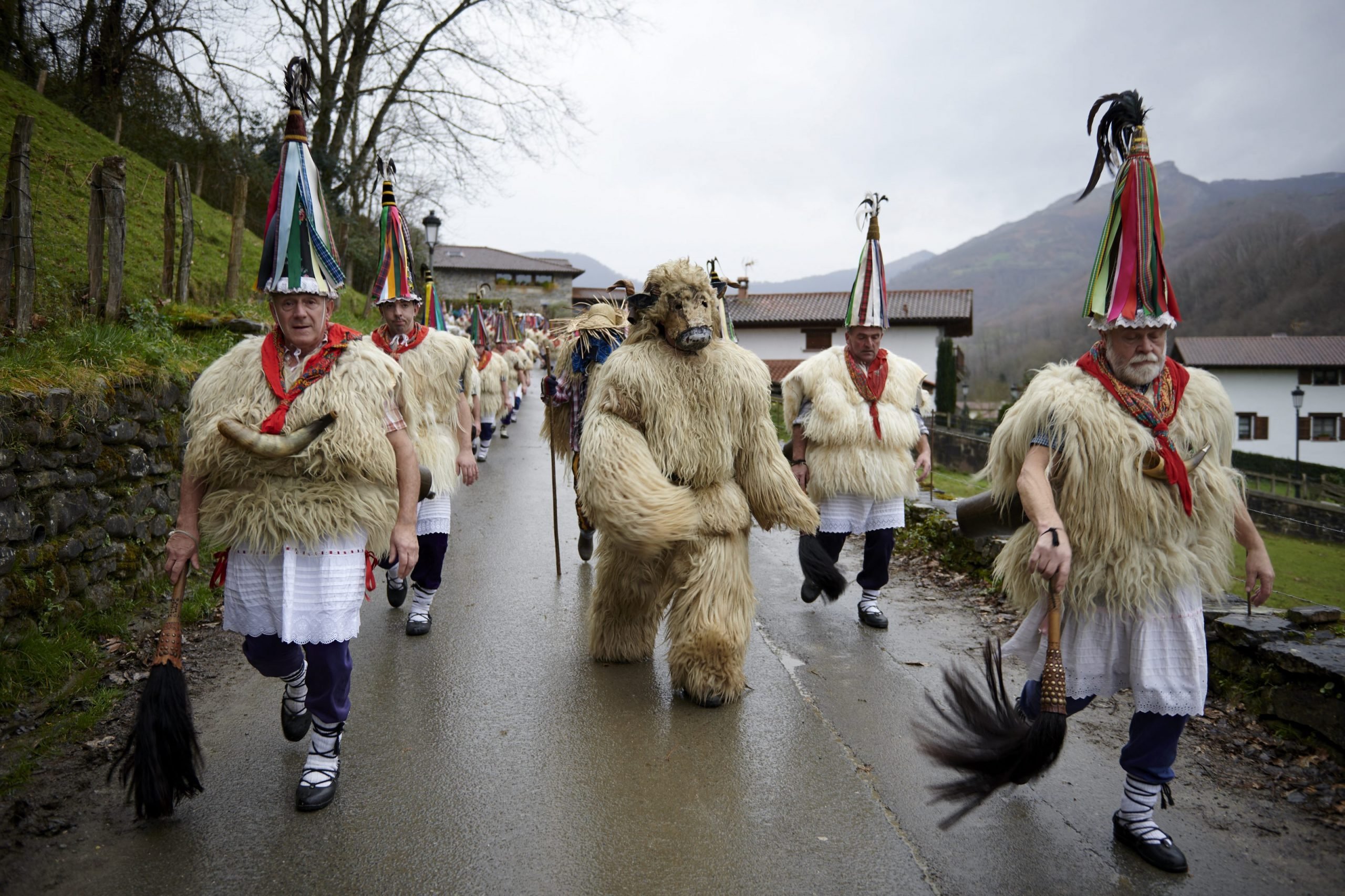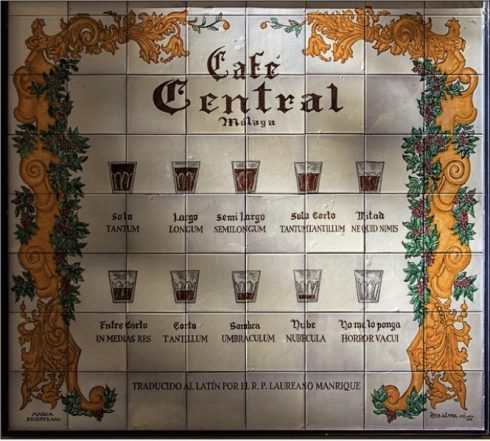FORGET the Three Kings, this tiny town in the Basque Country has something better – the simultaneously fun and frightening pagan celebration that takes place in Nafarroa, a little nook of tradition and mysticism in the Spanish Pyrenees. If you haven’t met any monsters recently, this is the place to be.
Bell wearers, or Joaldunak, as they are known in Basque, dress up in thick sheepskins and tall colorful hats, clanging large cowbells tied to their backs to scare away the bad spirits and the witches.
The men traditionally march onwards to Ituren and Zubieta, two adjoining towns in the province of Navarra that share the tradition.
On Monday the group from Zubieta head to Ituren, joined along the way by the Ituren group, and the following day, the Ituren group marches to Zubieta.
In recent years, women and young girls have started to take part in the ritual as well.
A shepherd holding the chains of a huge carnival ‘bear’ with ram-horn ears accompanies the Joaldunak on their march, taking swipes at the crowd and ordering the sea of monsters to step aside to let them pass.
Straddling the Spanish-French border, these mysterious mountain towns are a melting pot of pagan beliefs and Basque culture and legend has it the shadowy northern fringe of Navarra has long offered refuge to smugglers, witches and penniless pilgrims over the years.
The carnival takes place at the end of January, usually starting on the final Sunday of the month and continuing until Tuesday.
The biggest festival of the year, thousands of people flock from all parts of Spain to watch the three-day festival, which many people see as the beginning of spring as the Joaldunak march to ward off dark winter spirits and herald in the warmth, light and fertility of Spring.
A truly scenic celebration, with mountain peaks making a beautiful background, sees locals fasten silver thistle to the lintel above the door to ward off witches. Later the villagers will take to the streets to watch the process and cheer the brave Joaldunak on their quest to rid the town of monsters – and welcome the long-awaited return of spring.
READ ALSO:
- Woman takes the role of Jarramplas for first time in Spain’s bizarre turnip throwing fiesta
- Unsettling statue of ‘drowning girl’ disturbs onlookers








